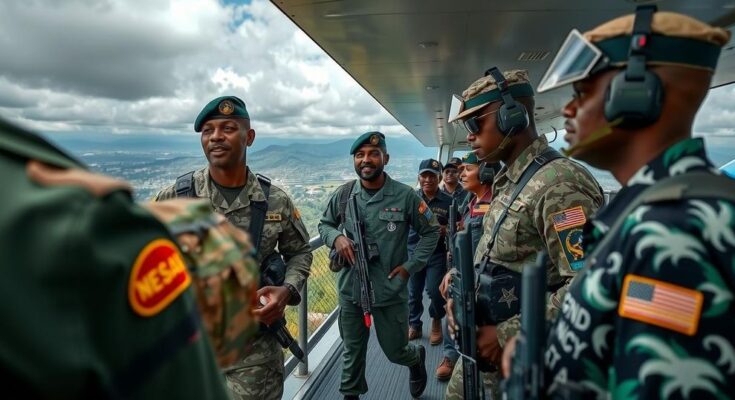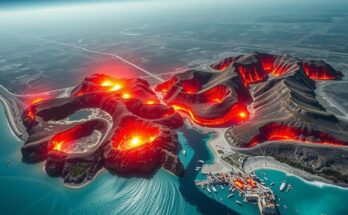Russia has sent up to 200 military instructors to Equatorial Guinea to enhance presidential security, training elite guards in Malabo and Bata. This deployment is part of Russia’s strategy to increase influence in Africa, following criticism of Equatorial Guinea’s human rights record and the ongoing shift away from Western alliances. Both the president and vice president have pursued military agreements with Russia, indicating a significant geopolitical realignment in the region.
Recent reports indicate that Russia has dispatched up to 200 military instructors to Equatorial Guinea with the aim of bolstering the security of the presidency. This initiative is part of Russia’s broader strategy to enhance its influence in Africa. The Russian personnel are reportedly engaged in training elite presidential guards in the capital city, Malabo, and in Bata, the country’s second-largest city. Observations of Russian troops in these areas have been noted, reinforcing the belief that their deployment is intended to ensure the safety of President Teodoro Obiang Nguema Mbasogo and his family. The initial reports of Russian military presence in Equatorial Guinea emerged in August. According to sources from Reuters, the deployment consists of a contingent of troops linked to the corps formerly known as Wagner, which has been integrated into the structure of the Russian military. Both President Obiang and Vice President Teodoro Obiang Mangue, who has garnered international scrutiny for his extravagant lifestyle and legal controversies, have taken steps to formalize military relationships with Russia alongside attempts to negotiate agreements in gas and mineral exploration. The administration in Equatorial Guinea has faced substantial scrutiny regarding its human rights practices, with allegations of arbitrary killings and torture highlighted in a US government report. Amidst this backdrop, Russia’s burgeoning military role is seen by some analysts as a challenge to traditional Western influence in the region. This shift is underscored by several Equatorial Guinean official visits to Russia, with President Obiang expressing gratitude to President Vladimir Putin for the military support. Recently, US-based human rights activist Tutu Alicante emphasized that Russia’s military actions could potentially undermine US geopolitical endeavors in the region, suggesting an ongoing pivot toward closer ties with Russia by nations disenchanted with Western assistance.
Equatorial Guinea, a small nation with a population of approximately 1.7 million, has been under the long-standing rule of President Teodoro Obiang Nguema Mbasogo since 1979. The country has a troubling history regarding human rights abuses and has been criticized for its lack of democratic governance. In recent years, Russia has sought to bolster its influence in Africa, providing military support to regimes in various countries that have distanced themselves from Western powers. Reports suggest that both Russia and Belarus have been seeking to establish military agreements with Equatorial Guinea, reflecting a broader trend of African nations shifting their alliances from traditional Western partners to emerging powers like Russia.
In summary, Russia’s recent military engagement in Equatorial Guinea through the deployment of military instructors marks a significant development in the country’s security landscape and regional geopolitics. This move not only strengthens the safety of the current regime but also signals a shift in power dynamics in Africa, particularly as nations reassess their alliances in the wake of diminishing Western influence. Observers will likely continue to monitor the ramifications of this military support on both Equatorial Guinea’s governance and its international relationships.
Original Source: www.bbc.com




